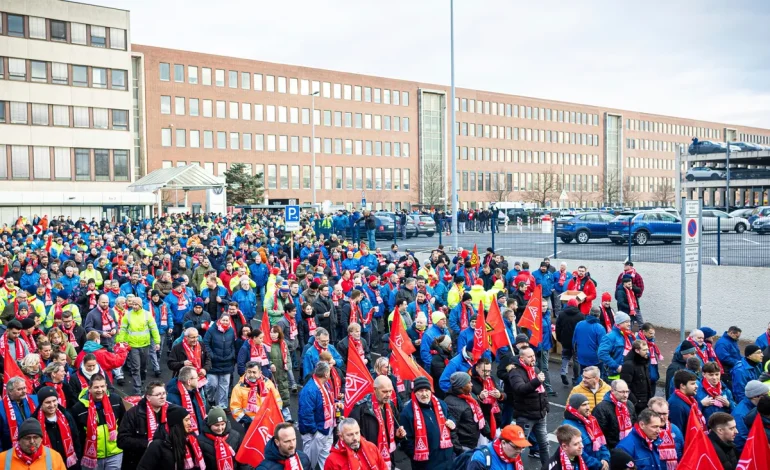Volkswagen (VW) workers across Germany launched walkouts on Monday after failed negotiations between management and labor leaders over cost-cutting measures.
The “warning strikes,” temporary walkouts aimed at pressuring management, are taking place at nearly all of VW’s German plants, with the first strike starting at the company’s flagship electric-vehicle factory in Saxony. As a result, VW’s shares dropped by as much as 1.9%.
The walkouts are part of a broader dispute over the company’s efforts to address falling demand for electric vehicles (EVs), rising operational costs, and increasing competition from Chinese manufacturers. VW management has proposed shutting down as many as three factories in Germany and laying off thousands of workers as part of a broader cost-reduction strategy. However, union representatives, including Thorsten Gröger from IG Metall, are pushing back, advocating to keep plants operational.
“If necessary, this will be the toughest collective bargaining battle Volkswagen has ever seen,” Gröger warned ahead of the strikes.
This marks the first significant walkout across VW sites since 2021, when the company experienced smaller-scale walkouts during the pandemic. However, the 2018 wage negotiations saw more than 50,000 workers participate in protests across six factories.
The main plant in Wolfsburg has seen workers leaving their stations or ending shifts early to attend rallies in front of management’s offices, where union leaders, including works council chief Daniela Cavallo, are expected to speak.
Volkswagen management has expressed its commitment to finding a constructive solution, but the company dismissed the union’s recent proposals to avoid factory closures, calling them insufficient.
“Volkswagen has set fire to our collective agreements,” Gröger said.
He accused the company of worsening the situation.
VW’s corporate structure, which grants workers significant influence, complicates management’s ability to implement drastic measures without the approval of employee representatives. These representatives hold half of the seats on the company’s supervisory board, and the state of Lower Saxony holds additional seats, further strengthening worker influence.
Volkswagen has yet to resolve the conflict.
Bloomberg and the Financial Times contributed to this report.









